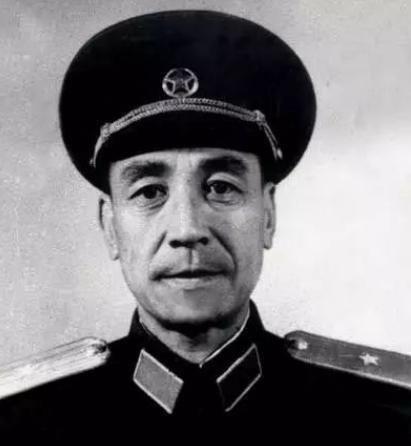Among the founding major generals of New China, there was no shortage of people who served as division-level cadres in the Red Army, but in the later period, the promotion became slower and slower, and on the contrary, many generals, who did not hold high positions in the Red Army, began to show their fists after the War of Resistance Against Japanese Aggression, and their positions were constantly promoted, like Long Shujin.

When it comes to Long Shujin, there are many people who don't know him, but he was a warrior who dared to fight in the war years.
He joined the Red Guards before 1930 and later joined the main force of the Red Army. During the Red Army period, although he fought bravely and was awarded the title of combat hero, his promotion was not fast, and he was promoted from soldier to squad leader, then platoon leader and company commander in 7 years.
After the outbreak of the War of Resistance, his position did not change, and he still served as a company commander. In this 8-year war against foreign insults, he made no small achievements, which can be well explained from his position. He rose from company commander all the way to deputy battalion commander, battalion commander, then regimental commander, and then deputy brigade commander four years later. Later, he served as deputy commander of the Bohai Naval Region, which is a deputy division level.
Before and after the end of the War of Resistance Against Japanese Aggression, he served as the deputy division commander of the Shandong Field Army, and later followed the large troops to the northeast to fight, serving as deputy division commander, division commander, deputy commander, and military commander. In the northeast operation, he participated in the Siping Offensive and the Jinzhou Offensive, and then went south with his troops, participating in the Pingjin Campaign and the Battle of Crossing the River.
After liberation, he participated in the liberation of Hainan Island and other liberations, and later served as the commander of the Eastern Provincial Military Region and the commander of the Hunan Provincial Military Region, and after 1968, he was transferred to the Xinjiang Military Region as a commander. The Xinjiang Military Region was one of the major military regions at that time, and he was a major general who could serve as the main post of the large military region together with the general and lieutenant general, which showed that his ability was not ordinary.
Four years later, he was removed from office for a number of reasons, until 1983, when he chose to leave. Enjoyed the treatment of deputy post in the Grand Military Region, he died in 2003.